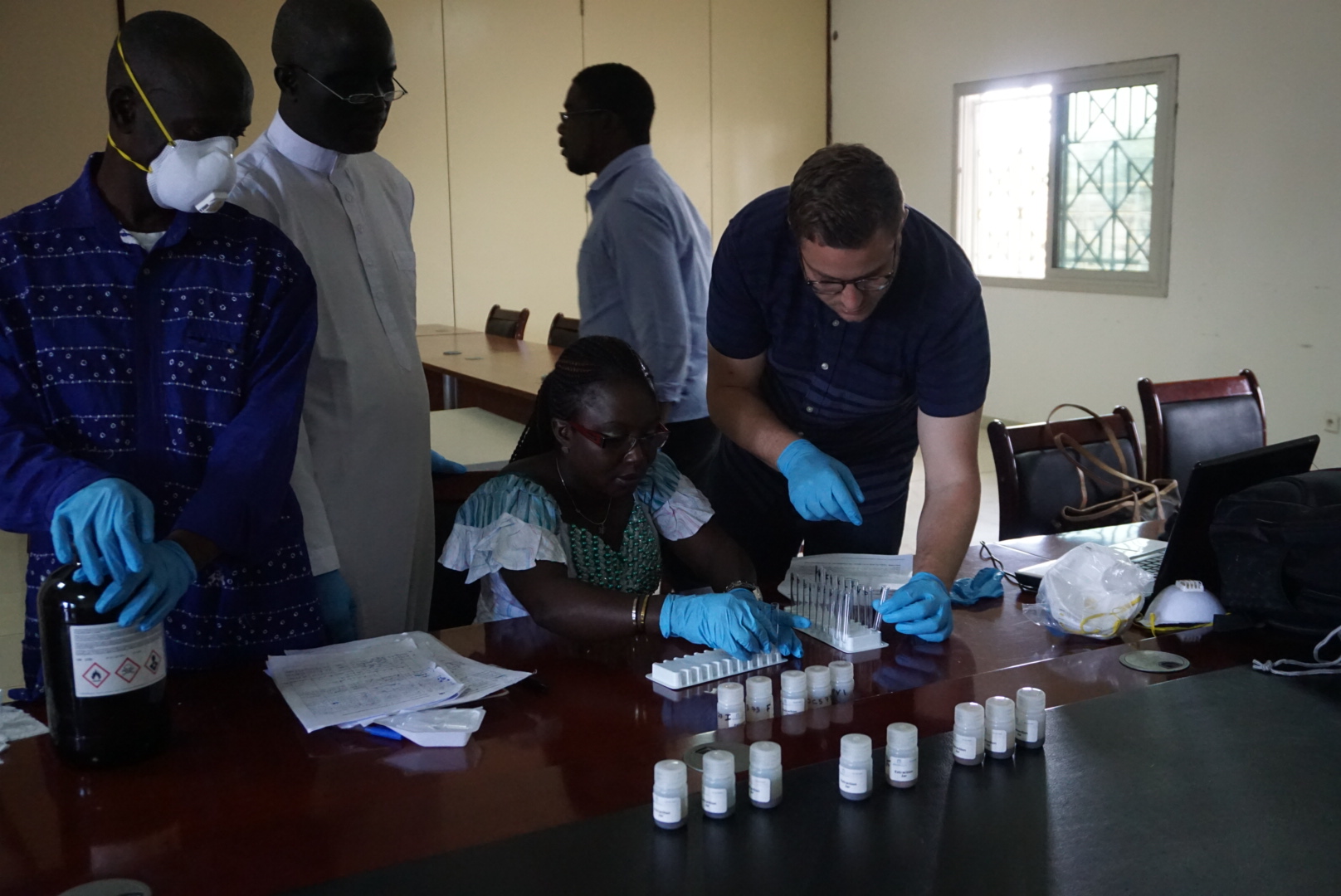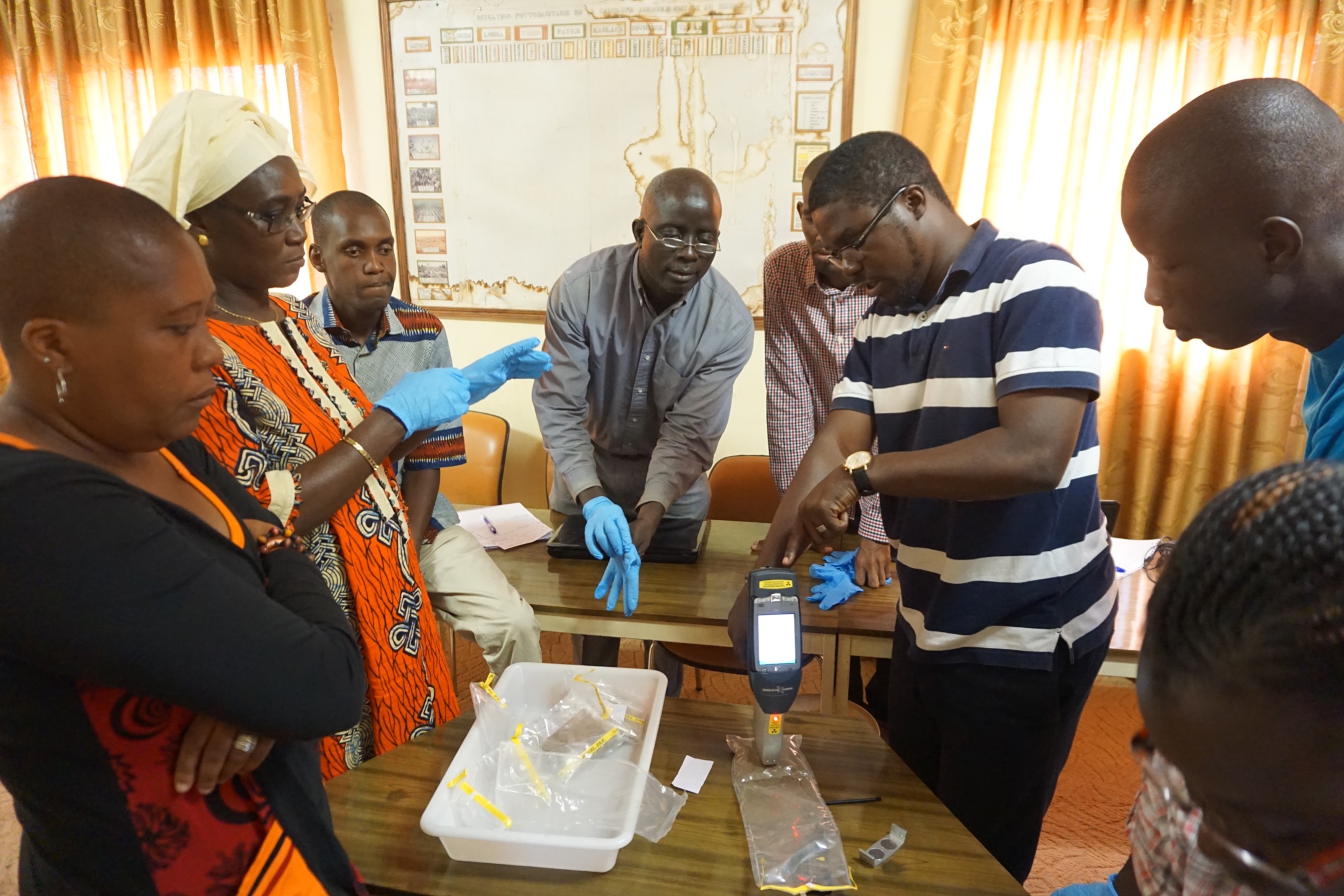Pure Earth regional director for Africa, Judith St. Fort, and senior program officer, Russell Dowling, recently returned to Senegal to help train local toxic site investigators as part of the Toxic Sites Identification Program (TSIP).
Judith and Russell brought with them dozens of organichlorine pesticide test kits, which investigators were taught to use to assess toxic sites. These test kits allow investigators to measure contamination levels quickly, and at a fraction of the cost of traditional lab tests.
Bennett Akuffo, a Pure Earth consultant from Ghana, came along to lend a hand, and to learn about identifying pesticide-polluted sites.
 Fatoumata Barry, an investigator from Senegal, tries her hand at using the organichlorine pesticide test kit, while Bennett Akuffo looks on.
Fatoumata Barry, an investigator from Senegal, tries her hand at using the organichlorine pesticide test kit, while Bennett Akuffo looks on.
 Russell demonstrates.
Russell demonstrates.
The investigators were also taught how to use an XRF, a handheld X-ray fluorescence analyzer that can identify toxic particles in soil in about 30 seconds. The XRF is essential to TSIP investigations as it allows quick and reliable assessments of sites.
 Judith S. Fort, Pure Earth’s regional director for Africa (far left), oversees the XRF training.
Judith S. Fort, Pure Earth’s regional director for Africa (far left), oversees the XRF training.
After the classroom training, the group went out into the field.
They visited this pesticide site, which appeared to be properly handling the disposal of the toxins. The barrels below, which had been used to store pesticides, have been crushed to prevent residents re-using the barrels for everyday purposes.

These old pesticide containers (pictured below) have also been crushed to prevent re-use. Investigators tested the area around this site to see if there was any major contamination. Preliminary results from the test kit analysis show elevated levels of pesticides in the soil.
This active pesticide storage site is located near a residential area. You can see how close homes are to the wall of the site.

Pure Earth’s new Senegal coordinator, Khadidiatou Sy Djigo, will keep our work moving forward in her country after Judith and Russell return to New York.
Investigators in Senegal have assessed approximately ten sites so far. They will look to assess dozens more in the coming months.
 Pure Earth’s Senegal coordinator Khadidiatou Sy Djigo
Pure Earth’s Senegal coordinator Khadidiatou Sy Djigo
For over a decade, Pure Earth’s TSIP has been training and sending investigators out across the world’s worst polluted places to identify, assess and map contaminated sites that pose a health risk to communities.
The important data this new group of investigators in Senegal is collecting will be uploaded to our database of polluted sites, which is now available online at www.contaminatedsites.org.
Related:





